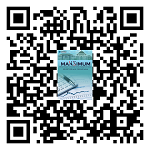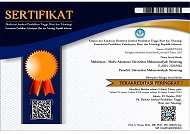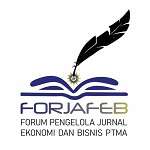Fraudulent Financial Reporting in Manufacturing Companies: Does Intellectual Capital Matter?
(1) Universitas Sebelas Maret
(2) Universitas Sebelas Maret
(*) Corresponding Author
Abstract
Manufacturing companies cannot survive market competition if they only utilize tangible resources. The existence of intellectual capital in manufacturing companies plays an important role in increasing the added value that is useful for sustainability and financial performance. Having intellectual capital helps suppress opportunistic behavior that can lead to fraudulent financial statements. Manufacturing companies should optimize intellectual capital to minimize the risk of financial statement fraud. It aims to investigate the relationship between intellectual capital, human capital, structural capital, relational capital, and financial statement fraud. The total research sample selected was 226 companies from a total population of 502. The findings demonstrate that relational and intellectual capital significantly reduce financial statement fraud. The effects of human capital and structural capital, however, are not significant. Having high levels of intellectual capital and relational capital will provide a competitive advantage for manufacturing companies that can prevent opportunistic behavior.
Keywords
Full Text:
PDFReferences
ACFE. (2019). Survey fraud Indonesia 2019.
ACFE. (2022). Report to the nations. Desember, 2022.
Ali, B. J., & Anwar, G. (2021). Intellectual capital: A modern model to measure the value creation in a business. International Journal of Engineering, Business and Management, 5(2), 31–43. https://doi.org/10.22161/ijebm.5.2.4
Allo, E. B., & Rachmawati, S. (2022). Financial Stability, External Pressure, Financial Target, Dan Green Intellectual Capital Yang Mempengaruhi Fraudulent Financial Statement. Jurnal Ekonomi Trisakti, 2(2), 1703–1714. https://doi.org/10.25105/jet.v2i2.14755
Andriani, D. (2021). A critical review of the labor competitiveness as human capital in Indonesia. International Journal of Research in Business and Social Science (2147- 4478), 10(5), 52–65. https://doi.org/10.20525/ijrbs.v10i5.1303
Azzahra, K. (2018). The influence of human capital, structural capital and relational capital to the performance of cooperationwith competitive advantage as intervening variable of cooperation in south tangerang. EAJ (Economic and Accounting Journal), 1(1), 24–34. https://doi.org/10.32493/eaj.v1i1.y2018.p24-34
Bambang Tjahjadi, Noorlailie Soewarno, Viviani Nadyaningrum, & Aisyah Aminy. (2022). Boosting firm performance of Indonesian MSMEs: human capital readiness and global market orientation hold the key. In Human Resource Management International Digest (Vol. 30, Issue 6, pp. 22–24). Emerald Publishing. https://doi.org/10.1108/HRMID-06-2022-0111
Catanzaro, A., Messeghem, K., & Sammut, S. (2019). Effectiveness of Export Support Programs: Impact on the Relational Capital and International Performance of Early Internationalizing Small Businesses. Journal of Small Business Management, 57(sup2), 436–461. https://doi.org/10.1111/jsbm.12489
Cooper, D. J., Dacin, T., & Palmer, D. (2013). Fraud in accounting, organizations and society: Extending the boundaries of research. Accounting, Organizations and Society, 38(6–7), 440–457. https://doi.org/10.1016/j.aos.2013.11.001
Cressey, D. R. (1953). Other people’s money; a study of the social psychology of embezzlement. In Other people’s money; a study of the social psychology of embezzlement. Free Press.
Dharni, K., & Jameel, S. (2022). Trends and relationship among intellectual capital disclosures, patent statistics and firm performance in Indian manufacturing sector. Journal of Intellectual Capital, 23(4), 936–956. https://doi.org/10.1108/JIC-05-2020-0148
Dohamid, A. G., Akbar, M., & Luddin, M. R. (2020). Strategic Leadership For The Implementation of Three Values of Higher Education Performed by The Indonesian Defense University (IDU) In The 2015-2018 Period. IJHCM (International Journal of Human Capital Management), 4(1), 82–86. https://doi.org/10.21009/ijhcm.04.01.07
Duan, Y., Chen, Y., Liu, S., Wong, C.-S., Yang, M., & Mu, C. (2023). The moderating effect of leadership empowerment on relational capital and firms’ innovation performance in the entrepreneurial ecosystem: Evidence from China. Journal of Intellectual Capital, 24(1), 306–336. https://doi.org/10.1108/JIC-07-2021-0183
Evana, E., Metalia, M., Mirfazli, E., Georgieva, D. V., & Sastrodiharjo, I. (2019). Business Ethics in Providing Financial Statements: The Testing of Fraud Pentagon Theory on the Manufacturing Sector in Indonesia. Business Ethics and Leadership, 3(3), 68–77. https://doi.org/10.21272/bel.3(3).68-77.2019
Ganguly, A., Talukdar, A., & Chatterjee, D. (2020). Social capital, knowledge quality, knowledge sharing, and innovation capability: An empirical study of the Indian pharmaceutical sector. Knowledge and Process Management, 27(1), 25–42. https://doi.org/10.1002/kpm.1614
Hamdan, A. (2018). Intellectual capital and firm performance. International Journal of Islamic and Middle Eastern Finance and Management, 11(1), 139–151. https://doi.org/10.1108/IMEFM-02-2017-0053
Hutahayan, B. (2020). The mediating role of human capital and management accounting information system in the relationship between innovation strategy and internal process performance and the impact on corporate financial performance. Benchmarking: An International Journal, 27(4), 1289–1318. https://doi.org/10.1108/BIJ-02-2018-0034
Jaya, I. M. L. M. (2021). Impact of Intellectual Capital on Earnings Management: Financial Statement Fraud In Indonesia. Journal of Economics, Finance And Management Studies, 04(06). https://doi.org/10.47191/jefms/v4-i6-07
Jha, A. (2019). Financial Reports and Social Capital. Journal of Business Ethics, 155(2), 567–596. https://doi.org/10.1007/s10551-017-3495-5
Kafetzopoulos, D., & Psomas, E. (2015). The impact of innovation capability on the performance of manufacturing companies. Journal of Manufacturing Technology Management, 26(1), 104–130. https://doi.org/10.1108/JMTM-12-2012-0117
Khan, S. N., & Ali, E. I. E. (2017). The Moderating Role of Intellectual Capital Between Enterprise Risk Management and Firm Performance: A Conceptual Review. American Journal of Social Sciences and Humanities, 2(1), 9–15. https://doi.org/10.20448/801.21.9.15
Laursen, K., Masciarelli, F., & Prencipe, A. (2012). Regions Matter: How Localized Social Capital Affects Innovation and External Knowledge Acquisition. Organization Science, 23(1), 177–193. https://doi.org/10.1287/orsc.1110.0650
Lotfi, A., Salehi, M., & Lari Dashtbayaz, M. (2022). The effect of intellectual capital on fraud in financial statements. The TQM Journal, 34(4), 651–674. https://doi.org/10.1108/TQM-11-2020-0257
Mubarik, M. S., Govindaraju, C., & Devadason, E. S. (2016). Human capital development for SMEs in Pakistan: is the “one-size-fits-all” policy adequate? International Journal of Social Economics, 43(8), 804–822. https://doi.org/10.1108/IJSE-02-2015-0033
Nasir, N. A. B. M., Ali, M. J., & Ahmed, K. (2019). Corporate governance, board ethnicity and financial statement fraud: evidence from Malaysia. Accounting Research Journal, 32(3), 514–531. https://doi.org/10.1108/ARJ-02-2018-0024
Obeidat, B. Y., Tarhini, A., Ra’, N. A., Masa’, ed, deh, N. A., & Aqqad, N. O. (2017). The impact of intellectual capital on innovation via the mediating role of knowledge management: a structural equation modelling approach. International Journal of Knowledge Management Studies, 8(3/4), 273. https://doi.org/10.1504/IJKMS.2017.087071
Onuoha, N. E., Ofoegbu, G. N., Okafor, R. G., & Onodugo, V. A. (2020). Voluntary disclosure of intellectual capital information by deposit money banks in Nigeria. Journal of Intellectual Capital, 21(6), 1035–1052. https://doi.org/10.1108/JIC-09-2019-0229
Salehi, M., Ali Mohammed Al-Msafir, H., Homayoun, S., & Zimon, G. (2023). The effect of social and intellectual capital on fraud and money laundering in Iraq. Journal of Money Laundering Control, 26(2), 227–252. https://doi.org/10.1108/JMLC-12-2021-0142
Salvi, A., Vitolla, F., Giakoumelou, A., Raimo, N., & Rubino, M. (2020). Intellectual capital disclosure in integrated reports: The effect on firm value. Technological Forecasting and Social Change, 160, 120228. https://doi.org/10.1016/j.techfore.2020.120228
Saputra, M. H., & Pratomo, L. A. (2023). Optimization of relational capital and the strength of SMEs network collaboration to improve its performance: Evidence from Indonesia. Jurnal Manajemen Dan Pemasaran Jasa, 16(1), 111–126. https://doi.org/10.25105/jmpj.v16i1.16527
Shahwan, T. M., & Habib, A. M. (2020). Does the efficiency of corporate governance and intellectual capital affect a firm’s financial distress? Evidence from Egypt. Journal of Intellectual Capital, 21(3), 403–430. https://doi.org/10.1108/JIC-06-2019-0143
Smriti, N., & Das, N. (2018). The impact of intellectual capital on firm performance: a study of Indian firms listed in COSPI. Journal of Intellectual Capital, 19(5), 935–964. https://doi.org/10.1108/JIC-11-2017-0156
Thien, N. H., Asif, J., Kweh, Q. L., & Ting, I. W. K. (2024). Firm efficiency and corporate performance: the moderating role of controlling shareholders. Benchmarking: An International Journal, 31(8), 2602–2623. https://doi.org/10.1108/BIJ-04-2022-0253
Tiffani, L., & Marfuah, M. (2015). Deteksi financial statement fraud dengan analisis fraud triangle pada perusahaan manufaktur yang terdaftar di bursa efek Indonesia. Jurnal Akuntansi & Auditing Indonesia, 19(2), 112–125. https://doi.org/10.20885/jaai.vol19.iss2.art3
Xu, J., & Li, J. (2022). The interrelationship between intellectual capital and firm performance: evidence from China’s manufacturing sector. Journal of Intellectual Capital, 23(2), 313–341. https://doi.org/10.1108/JIC-08-2019-0189
Zahoor, N., & Al-Tabbaa, O. (2021). Post-entry internationalization speed of SMEs: The role of relational mechanisms and foreign market knowledge. International Business Review, 30(1), 101761. https://doi.org/10.1016/j.ibusrev.2020.101761
Zheng, Q., Luo, Y., & Wang, S. L. (2014). Moral Degradation, Business Ethics, and Corporate Social Responsibility in a Transitional Economy. Journal of Business Ethics, 120(3), 405–421. https://doi.org/10.1007/s10551-013-1668-4
Article Metrics
Abstract view : 92 timesPDF - 1 times
DOI: https://doi.org/10.26714/mki.15.2.2025.271-283
Refbacks
- There are currently no refbacks.
-----------------------------------------------------------------------------------------------------------------------------------------------------------------------------------
 | MAKSIMUM: Media Akuntansi Universitas Muhammadiyah Semarang |
![]()
Maksimum: Media Akuntansi Universitas Muhammadiyah Semarang is licensed under a Creative Commons Attribution Attribution-NonCommercial-NoDerivatives 4.0 International License.

















